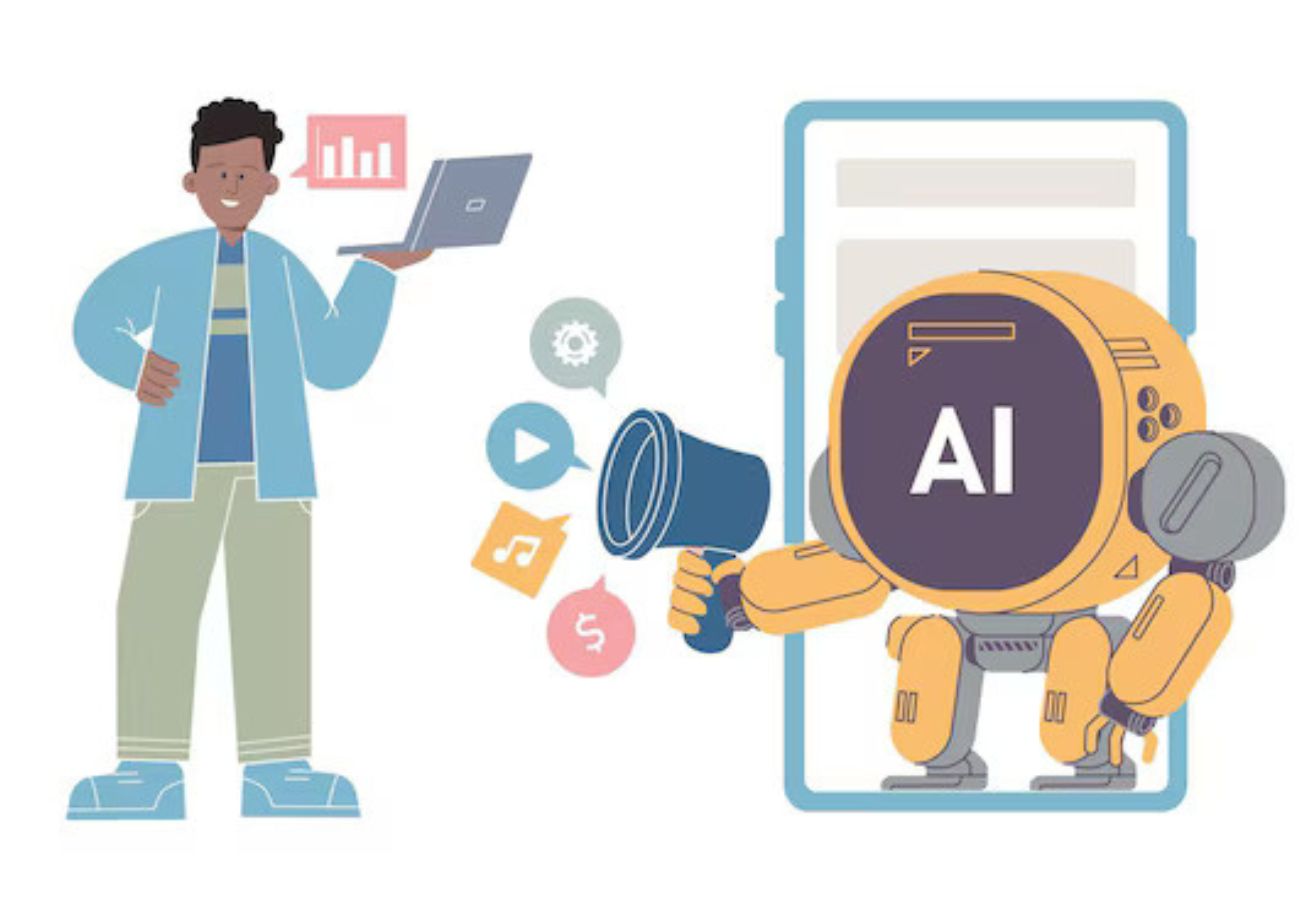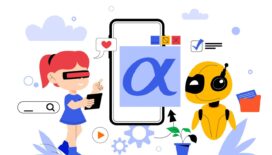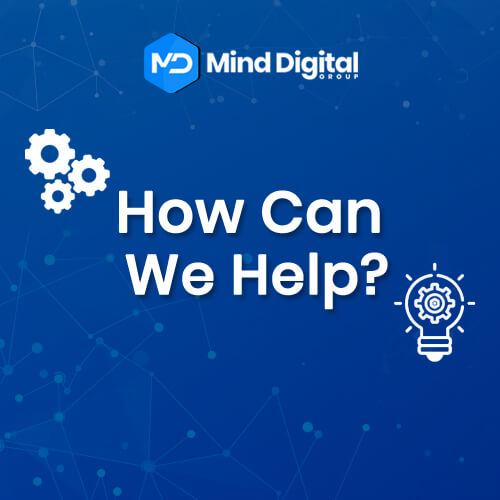
8 Ways to Use AI in Digital Marketing
Artificial Intelligence (AI) has transformed from buzzword to an integral aspect of digital marketing services. It is now being utilized by brands to better know their customers, forecast trends, and craft campaigns that actually resonate. What’s beautiful about AI is that it makes marketing intelligent, not cumbersome. Whether your online store is small or big or you own a global brand, AI can assist you in reaching the right audience at the right moment with the right message.
Here are eight real-life applications of AI in digital marketing and how they can set you apart.
1. Personalizing Customer Experiences
No more blanket emails and adverts for customers. They yearn for personalization. AI simplifies the process by examining behavior, buying history, and even internet browsing history. Rather than hitting everyone with the same thing, you’re able to personalize experiences.
- A website for shopping online might suggest attire to a client on the basis of his or her previous purchases.
- A tour organization could suggest weekend excursions for a client who has just reserved a long vacation.
- A food ordering website can tell visitors what they ordered last week.
Why it matters: People feel special when content is personalized to them, which leads to loyalty and repeat business.
2. Intelligent Chatbots for Customer Support
Chatbots used to be clunky but now are conversational and effective using AI. They can respond to FAQs, place orders, and offer real-time updates with minimal or no human intervention.
- Operate 24/7, ideal for international businesses.
- Saves customers’ time waiting.
- Collects information via conversations to enhance future conversations.
Tip: Use chatbots for simple questions but allow the option to engage a human being for complicated issues.
3. Predictive Analytics for Campaigns
AI is not merely about answering customers’ needs, but it can even anticipate them. By examining patterns in the data, AI applications can anticipate what customers will purchase next or when they are most likely to convert.
Marketers are able to utilize predictive analytics in the following ways:
- Determine which leads are hot and worth chasing.
- More effectively predict seasonal sales.
- Optimize marketing budgets for improved ROI.
Example: A beauty company can forecast what products are going to be in demand on holidays and create specific promotions beforehand.
4. AI-Fueled Content Creation
Content is king, but it takes time to create it. AI tools nowadays can come up with headlines, write blogs, recommend keywords, and even produce ad copies. Of course, you still require human imagination to make it deep and emotional, but AI makes it faster.
| Use Case | Example | Benefit |
| Blog drafts | Suggests outlines for trending topics | Saves research and planning time |
| Social media posts | Auto-generates captions and hashtags | Consistent and timely posting |
| Ad headlines | Creates variations for A/B testing | Improves performance quickly |
Note: Don’t use AI alone to create content. Merge it with your brand voice.
5. Enhanced Ad Targeting
Targeting-free ads are blindfolded darts. Guesswork is removed by AI analyzing user behavior and segmentation. AI enables companies to display ads to those with a high chance of purchasing.
- AI technology is capable of real-time bidding optimization.
- Ads can be optimized on location, interest, and device.
- Campaigns become more effective with less waste.
Result: Improved ROI and reduced cost per click.
6. Voice Search Optimization
More individuals are utilising voice assistants such as Alexa, Siri, and Google Assistant. Rather than typing in the search query “best coffee shop in Delhi,” they type “Where is the best coffee shop nearby now?”
AI assists marketers in making content compatible with this natively-approaching search. To remain competitive:
- Utilize conversational keywords.
- Develop FAQ-style content.
- Keep local SEO data current.
Why it matters: Voice searches are high intent, so customers are ready to act.
7. Sentiment Analysis
Computers can analyze hundreds of reviews, comments, and mentions to determine what people actually think about your company. It is also referred to as sentiment analysis that enables businesses to monitor their reputation.
- If sentiment is positive: double down on what’s working.
- If sentiment is negative: act fast to fix issues.
Example: A restaurant chain can identify rising complaints for late delivery and act before hurting the brand reputation.
8. Repetitive tasks automated
Marketing has a lot of repetitive tasks that consume precious time. AI does them so that teams can work on strategy and creativity.
Common automations include:
- Scheduling social media in advance.
- Sending follow-up emails after sales.
- Automating lead scores.
Result: More efficiency, more time spent planning campaigns, and fewer human errors.
Quick Recap Table
| AI Use Case | What It Does | Business Impact |
| Personalization | Tailors experiences for each customer | Boosts loyalty and sales |
| Chatbots | Provides instant support | Saves time, improves satisfaction |
| Predictive Analytics | Forecasts future customer behavior | Smarter decisions, better ROI |
| Content Creation | Drafts blogs, ads, and posts | Faster, more consistent marketing |
| Ad Targeting | Refines audience selection | Reduces wasted spend |
| Voice Search Optimization | Matches natural queries | Improves visibility in local searches |
| entiment Analysis | Tracks emotions in reviews/feedback | Protects brand reputation |
| Automation | Handles repetitive tasks | Frees up time for creativity |
FAQs
Q1: Is AI too expensive for small businesses?
Not anymore. There are plenty of low-budget or no-budget AI tools. You don’t need a massive budget to get started.
Q2: Will marketers be replaced by AI completely?
No. AI performs repetitive and data-focused tasks, not strategically, empathetically, or creativity, which are human strengths.
Q3: Do I have to be technical to use AI in marketing?
Most modern AI tools are intuitive. If you understand digital marketing tools, AI platforms will not intimidate you.
Q4: How can I start with AI marketing the fastest?
Begin small with chatbots, AI email campaigns, or sentiment analysis tools. See the value and then move to predictive analytics and advanced ad targeting.
Final Thoughts
AI is revolutionizing digital marketing by making campaigns smarter, faster, and more personal. From personalization and predictive analytics to automation and voice search, the potential is endless. Companies who head in the direction of AI now won’t just stay ahead of the competition, they’ll be ahead of it.
At Mind Digital, we enable brands to future-proof their marketing through AI-powered SEO and digital strategies. The time to adapt is now because the future of marketing isn’t guessing, it’s precision driven by AI.
Follow us
Recent post
Popular post
- How To Call Batch Apex By Scheduler Class Within Salesforce
- What Is The Importance Of Google Algorithm Updates
- How To Create Dynamic Dependent Picklist Of Objects Within Salesforce
- What Is Wrapper Class & How To Use It In Salesforce
- How To Create Pagination Within Salesforce
- Tips For Hiring A Good Offshore Drupal Development Company
- Web Development Mistakes That Affect Your Online Reputation
- How To Integrate Google Maps Into Your Salesforce Software
- Check Your Link Building Strategy For 2014
- Tips For Selling Products Through Social Networking
- How To Create A Chart With Salesforce
- Benefits of Using India For Outsourcing & Offshore Development
- How To Integrate Salesforce With Facebook
- What Is Service Cloud Console In Salesforce & How To Enable It
- Superior Offshore Web Development At A Reasonable Cost
- How To Create Bucket Fields In Your Salesforce Reports
- 5 Things To Consider When Hiring A Drupal Developer
- Growth Of E-commerce Website Development
- Challenges In Hiring An Offshore Web Development Company
- 10 Tips When Creating Batch Apex In Salesforce
- What To Include & What To Exclude In SEO Plans
- How To Create An Opportunity Using A Visualforce Page In Salesforce
- Hire An Offshore Ruby On Rails Development Company Over A Freelancer
- Hire Drupal Developers Offshore To Increase Your Capabilities
- Effective SEO In A Post Panda Update – The Rules Have Changed
- Common Mistakes In Offshore Web Development
- What To Consider While Hiring A Dedicated Ruby On Rails Developer?
- Smart Phone & Tablet User Penetration
- Tips For Hiring A Good Offshore PHP Development Company
- Why Responsive Web Design Is Essential For Your Business
- How To Email Documents From Salesforce
- Website Development And Website Design Company India
- Why Work With An Offshore Development Company?
- How To Create Tab Panel In Salesforce
- How To Avoid 5 Common Off-Page SEO Mistakes
- The Multi-Billion Dollar Offshore Software Development Industry
- What Are The Advantages Of Digital Marketing Over Traditional Marketing?
- SEO & Conversational Keyword Search
- How To Avoid 5 Common On-Page SEO Mistakes
- How To Add Google Authorship And Its Benefits For Better SEO
- What’s Better For Facebook Ads: CPC Or CPM?
- Questions To Ask Your Potential Search Engine Optimization Partner
- How To Create Batch Apex In Salesforce
- Benefits Of Offshore PHP Development For Your Businesses
- Offshore Magento Development Means More Than Just Development Help
- Why You Should Consider Hiring Joomla Developers Offshore
- What To Look For When Hiring A Dedicated OpenCart Developer
- Stop Using Free Web Templates – Hire A Web Development Company
- How To Manage An Offshore Development Company?
- Hire Offshore Software Professionals To Help Your Business
- Offshore Development Is A Sensible Solution For Recessionary Times
- Why You Should Offshore Your Joomla Website Development
- 5 Tips To Help You Hire A Good Offshore PHP Development Company
- Reasons Why Salesforce CRM Customization Is Easy
- PHP Development – Turn Your Website Into A Multi-Featured Web Application
- 5 Things To Ask A Web Development Company Before Starting Work
- How A Multifaceted Web Development Company Can Help You?
- Take Advantage By Hiring A PHP Development Company From India
- Use Social Media Marketing To Improve Your Brand Identity
- Hiring Dedicated Developers From Offshore Development Companies
- See Measurable Results By Hiring Dedicated Ruby On Rails Developer
- Avoid 4 Common WordPress Development Mistakes
- Can “Developed By” Links Hurt Your SEO?
- How To Get All Salesforce Components In Force.com IDE
- The Manifold Advantages Of Working With An Offshore Web Development Company
- Web Development Company In India Defined
- Hire A Dedicated Drupal Developer To Develop A High Performance CMS
- Offshore Development – The Most Beneficial And Cost Effective Way To Outsource Your Business
- What To Look For When Hiring An Offshore Development Company
- Why Dedicated PHP Web Developers Are In Demand
- How To Avoid Some Common Mistakes When Working With An Offshore Web Development Company
- How To Choose An SEO Company
- Factors To Consider When Hiring Offshore Developers In India
- What To Look For When Hiring Dedicated Magento Developers
- Why Google Create Its Own Title Instead Of Using Yours
- 3 Challenges of Working with an Offshore Web Development Company
- Why Ruby On Rails Development Has Become Popular
- Why Hire A Web Development Company That Also Offers SEO
- 10 Tips And Tricks For Salesforce
- Are Back-links Losing Their Importance To Google Search Rankings
- The Significance Of A Salesforce Developer
- 4 Reasons to Hire A Web Development Agency Over A Freelancer
- Hire A PHP Developer- How Outsourcing Can Be A Key To Success
- Importance Of Strategic Digital Marketing For Business Growth
- Factors To Keep In Mind Before Hiring Dedicated Magento Developer
- Web Development India – For Prompt And Accurate Services
- Looking For An Offshore PHP Development Company, Where Do I Begin?
- 5 SEO Myths
- How To Choose A Company When Hiring Dedicated PHP Developers
- Why You Should Optimize For Local Search
- Hiring Offshore WordPress Developers Can Help Your Business
- How To Use Social Networking To Market Your Business
- Why Offshore Web Development To India Makes Business Sense
- 5 Factors To Consider When Hiring A Web Development Company
- Top Five Benefits Of Salesforce
- Benefits Of Hiring A Dedicated PHP Developer From India
- Using SEO & Social Media Together
- How Can An SEO Company Help Your Profile Online
- Strategic Importance Of Mobile SEO
- Choose The Social Media Network That Suits Your Business
Archives
- March 2026
- February 2026
- January 2026
- December 2025
- November 2025
- October 2025
- September 2025
- August 2025
- July 2025
- June 2025
- May 2025
- April 2025
- March 2025
- February 2025
- January 2025
- December 2024
- November 2024
- October 2024
- September 2024
- July 2024
- June 2024
- May 2024
- April 2024
- March 2024
- February 2024
- September 2023
- August 2023
- July 2023
- June 2022
- May 2022
- March 2022
- January 2022
- August 2021
- July 2021
- June 2021
- May 2021
- January 2021
- December 2020
- September 2020
- August 2020
- July 2020
- June 2020
- April 2020
- March 2020
- December 2019
- November 2019
- October 2019
- September 2019
- August 2019
- July 2019
- June 2019
- May 2019
- April 2019
- March 2019
- February 2019
- January 2019
- December 2018
- November 2018
- September 2018
- April 2018
- February 2018
- January 2018
- September 2017
- August 2017
- July 2017
- June 2017
- May 2017
- April 2017
- March 2017
- February 2017
- January 2017
- December 2016
- November 2016
- October 2016
- September 2016
- August 2016
- July 2016
- June 2016
- May 2016
- April 2016
- March 2016
- February 2016
- January 2016
- December 2015
- November 2015
- October 2015
- September 2015
- August 2015
- July 2015
- June 2015
- May 2015
- April 2015
- March 2015
- February 2015
- January 2015
- December 2014
















